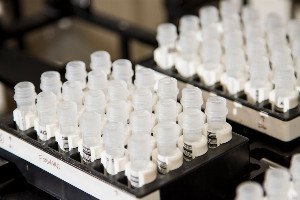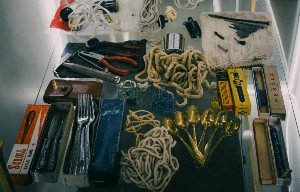Nur Lu’lu Fitriyani, Dina Adelia, Slamet Budiyanto , Ristiawati , Jaya Maulana, Muhammad Choiroel Anwar
Biosorption of Chromiun in Batik Wastewater Using SCOBY Microbial Biomass: A Sustainable Bioremediation Approach
Introduction
Biosorption of chromiun in batik wastewater using scoby microbial biomass: a sustainable bioremediation approach. SCOBY microbial biomass effectively remediates chromium in batik wastewater, reducing levels by up to 71%. Explore this sustainable bioremediation approach for heavy metal removal.
Abstract
Batik wastewater poses an environmental threat due to hazardous heavy metals like lead, cadmium, and chromium (Cr). This study investigated the effectiveness of SCOBY (Symbiotic Culture of Bacteria and Yeast), a microbial consortium from kombucha production, in reducing Cr levels in batik wastewater. SCOBY is a promising biosorbent for heavy metals. The research aimed to assess SCOBY's ability to decrease Cr contamination in different types of batik wastewater (hand-drawn, stamped, and printed) over varying incubation times. Using a quasi-experimental approach, wastewater samples were collected from small and medium industries in Pekalongan City. Results showed that SCOBY effectively reduced Cr levels across all batik wastewater types and incubation periods. The most significant reduction occurred at 3 hours of incubation. Specifically, Cr levels decreased by 53% in hand-drawn batik wastewater, 44% in stamped batik wastewater, and an impressive 71% in printed batik wastewater. These findings suggest that SCOBY treatment is a viable and effective alternative for managing batik wastewater.
Review
This study addresses a critical environmental issue: chromium contamination in batik wastewater, a significant concern given its hazardous nature and prevalence in industries like those in Pekalongan City. The authors propose an innovative and sustainable bioremediation approach utilizing SCOBY (Symbiotic Culture of Bacteria and Yeast) biomass, derived from kombucha production, as a biosorbent. This focus on a readily available and naturally occurring microbial consortium presents a highly promising avenue for tackling heavy metal pollution, aligning well with current trends towards eco-friendly waste treatment solutions. The abstract effectively introduces the problem and the potential of SCOBY, setting a clear objective for the research. The research employed a quasi-experimental design to evaluate SCOBY's efficacy across various batik wastewater types (hand-drawn, stamped, printed) and varying incubation periods, demonstrating a thorough approach to assessing its versatility. The results consistently show that SCOBY significantly reduces chromium levels in all tested wastewater samples, with an optimal incubation time identified at 3 hours. The reported reduction rates—53% for hand-drawn, 44% for stamped, and a remarkable 71% for printed batik wastewater—are compelling and underscore the practical viability of this method. These findings strongly support the potential of SCOBY as an effective and sustainable alternative for managing chromium-contaminated batik wastewater. While the abstract presents strong evidence for SCOBY's effectiveness, a full paper would benefit from further elaboration on several key aspects to enhance its scientific rigor and practical applicability. For instance, understanding the specific biosorption mechanisms (e.g., adsorption kinetics, isotherms, pH effects, SCOBY characterization before and after treatment) would provide deeper insights. A comparative analysis with existing chromium removal methods, discussing cost-effectiveness, scalability, and regeneration potential of the biosorbent, would also strengthen the argument for SCOBY as a superior alternative. Nevertheless, this work lays a solid foundation, offering a compelling demonstration of SCOBY's capacity for sustainable bioremediation and highlighting a valuable direction for future research in industrial wastewater treatment.
Full Text
You need to be logged in to view the full text and Download file of this article - Biosorption of Chromiun in Batik Wastewater Using SCOBY Microbial Biomass: A Sustainable Bioremediation Approach from Advance Sustainable Science Engineering and Technology .
Login to View Full Text And DownloadComments
You need to be logged in to post a comment.
Top Blogs by Rating
Beyond the Blueprint: Why Your...
By Sciaria
The Data Diet: What Big Data *...
By Sciaria
Unveiling the Hidden Journeys:...
By Sciaria
Favorite Blog
Andragogy: The Secret to Engag...
By Sciaria
Beyond the Blueprint: Why Your...
By Sciaria
Unveiling the Hidden Journeys:...
By Sciaria
Related Research
Pathways to desistance from crime: expectations and challenges upon release from open prisons
Erityistä ja vaativaa erityistä tukea saavien opiskelijoiden näkemyksiä ammatillisen perustutkintokoulutuksen opinto- ja uraohjauksesta osana henkilökohtaistamisprosessia
Pelatihan administrasi dan pemasaran produk olahan pangan lokal di kabupaten tangerang
Share
Notice Board
- ASPEK LEKSIKAL SINONIMI PADA CERKAK NEWYORK-SINGAPURA-JAKARTA KARYA PIRNGADI
- DECONSTRUCTING ?THE DOMAIN OF SCIENCE? AS A SOCIOLINGUISTIC ENTITY IN EFL SOCIETIES: THE RELATIONSHIP BETWEEN ENGLISH AND DANISH IN HIGHER EDUCATION AND RESEARCH
- HUBUNGAN TINGKAT PENGETAHUAN DAN SIKAP TERHADAP VAKSIN COVID-19 MELALUI MEDIA AUDIOVISUAL PADA REMAJA



